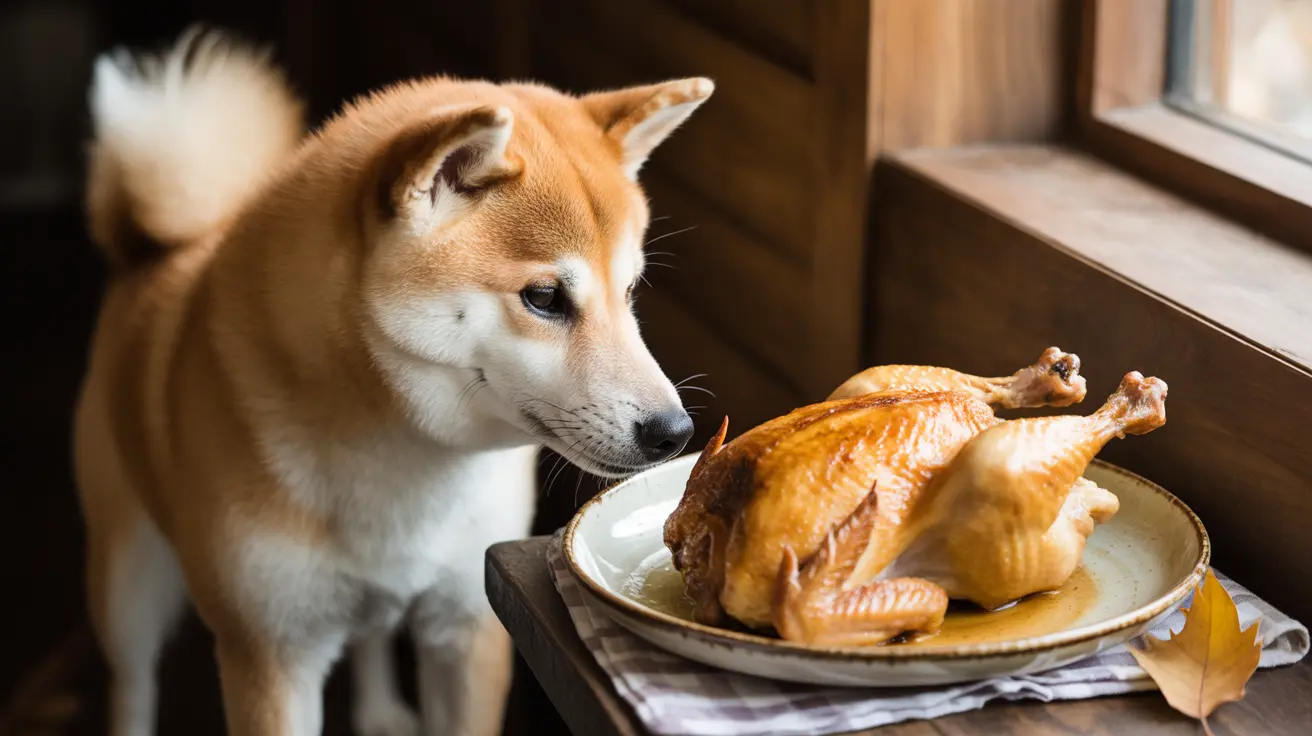Many dog owners wonder about sharing their rotisserie chicken with their furry friends. While plain chicken can be a healthy protein source for dogs, store-bought rotisserie chicken comes with several potential risks that pet parents need to understand. Let's explore whether dogs can safely eat rotisserie chicken and what precautions you should take.
This comprehensive guide will help you understand the benefits and risks of feeding rotisserie chicken to your dog, along with safe serving practices and healthier alternatives.
The Benefits of Plain Chicken for Dogs
Before discussing rotisserie chicken specifically, it's important to understand why plain chicken can be beneficial for dogs. Plain, cooked chicken is an excellent source of lean protein that supports muscle development and maintenance. It contains essential B vitamins, particularly niacin and B6, as well as minerals like phosphorus and selenium that contribute to your dog's overall health.
However, these benefits primarily apply to plain, unseasoned chicken – not the seasoned, high-sodium rotisserie variety commonly found in stores.
Risks of Feeding Dogs Rotisserie Chicken
Dangerous Seasonings and Additives
Store-bought rotisserie chicken typically contains numerous seasonings that can be harmful or toxic to dogs. Garlic and onion powder, common in rotisserie chicken preparations, can cause serious health issues in dogs, including damage to red blood cells. The high sodium content can lead to excessive thirst, dehydration, and more severe complications, especially in dogs with heart or kidney conditions.
Bone Hazards
Cooked chicken bones pose a significant danger to dogs. They can splinter easily, potentially causing:
- Choking
- Mouth and throat injuries
- Intestinal perforations
- Digestive blockages
- Internal bleeding
Fat Content Concerns
The skin and dark meat of rotisserie chicken contain high levels of fat that can cause:
- Pancreatitis
- Digestive upset
- Weight gain
- Diarrhea
- Vomiting
Safe Serving Guidelines
If you decide to give your dog rotisserie chicken, follow these essential safety steps:
- Remove all bones completely
- Discard the skin
- Choose white meat over dark meat
- Remove any visible fat
- Serve in small portions
- Monitor your dog for adverse reactions
Healthier Alternatives
Instead of rotisserie chicken, consider these safer options:
- Plain boiled chicken breast
- Baked chicken without seasonings
- Commercial dog food with chicken
- Veterinary-approved chicken treats
Frequently Asked Questions
Can dogs safely eat rotisserie chicken meat if all the bones and skin are removed?
While it's safer without bones and skin, rotisserie chicken still contains potentially harmful seasonings and high sodium levels. If you must feed it, use only small amounts of white meat with all seasonings removed.
What are the dangers of feeding rotisserie chicken bones to my dog?
Cooked chicken bones can splinter, causing choking, internal injuries, blockages, and perforations in the digestive tract. Never give your dog rotisserie chicken bones.
Why is the seasoning on rotisserie chicken harmful to dogs?
Common rotisserie chicken seasonings like garlic and onion are toxic to dogs. Additionally, the high sodium content can cause dehydration, electrolyte imbalances, and complications for dogs with existing health conditions.
How much plain cooked chicken is safe to feed my dog as a treat?
A general guideline is to feed no more than 1/4 to 1/3 cup of meat protein per 20 pounds of body weight daily, including their regular food. For treats, stick to small, bite-sized pieces occasionally.
What are the signs my dog might be having a bad reaction after eating rotisserie chicken?
Watch for symptoms like vomiting, diarrhea, lethargy, excessive thirst, changes in urination, abdominal pain, or allergic reactions such as itching or hives. Contact your veterinarian if you notice any of these signs.
Conclusion
While dogs can technically eat small amounts of properly prepared rotisserie chicken, the risks often outweigh the benefits. For your dog's safety and health, it's better to stick with plain, home-cooked chicken or high-quality commercial dog food. Always consult with your veterinarian about the best dietary choices for your specific pet.






